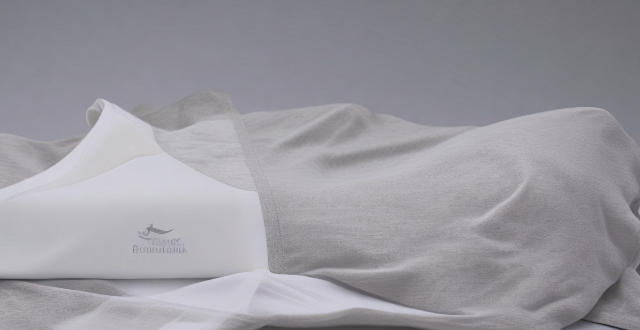Bed Sleep

How does sleep deprivation affect muscle recovery after workouts ?
Sleep is crucial for muscle recovery after workouts, as it allows the body to repair and rebuild damaged muscle tissue. Sleep deprivation reduces growth hormone production and protein synthesis, leading to inefficient muscle recovery. Strategies for improving sleep quality include establishing a consistent sleep schedule, creating a relaxing bedtime routine, avoiding screens before bed, getting plenty of exercise, and creating a comfortable sleeping environment. By prioritizing sleep, you can improve muscle recovery and overall health.

Is there a recommended amount of time to spend in bed for optimal rest ?
This text discusses the recommended amount of time to spend in bed for optimal rest. It emphasizes the importance of sleep for overall well-being and suggests aiming for 7-9 hours of sleep per night, with individual needs varying. The quality of sleep is also crucial, and good sleep habits can improve it. Chronic sleep deprivation can have serious consequences, so prioritizing sleep is essential for long-term health and happiness.

How can I improve my sleep quality ?
Improving sleep quality involves establishing a bedtime routine, creating a comfortable sleep environment, limiting caffeine and alcohol intake, avoiding electronics before bed, exercising regularly, managing stress levels, and considering natural sleep aids.

Is there a specific diet that can help with better sleep ?
Diet plays a crucial role in sleep patterns, with certain foods promoting relaxation and others disrupting sleep. The best foods for better sleep include turkey, milk, bananas, almonds, and chamomile tea, while caffeine, alcohol, spicy foods, sugary snacks, and heavy meals should be avoided before bedtime. Incorporating these dietary changes can help improve the quality of sleep and overall well-being.

How important is rest and sleep in sports recovery ?
Rest and sleep are crucial components of an athlete's recovery regimen, essential for muscle repair, CNS recharge, and mental clarity. Quality and quantity of sleep directly impact athletic performance through deep sleep phases and REM sleep. Practical tips include creating an optimal sleep environment, developing pre-sleep routines, and maintaining proper nutrition and hydration. Prioritizing rest and sleep is key to achieving peak physical condition and driving overall athletic success.

What strategies can help children develop good sleep habits ?
This article discusses strategies to help children develop good sleep habits, including establishing a consistent bedtime routine, creating a comfortable sleep environment, limiting screen time before bed, encouraging physical activity during the day, and maintaining a healthy diet. These habits are crucial for children's growth and development, leading to better physical health, improved cognitive function, and emotional stability. Parents should be patient and persistent in implementing these strategies, as it may take time for them to become established.

Does exercise increase deep sleep ?
Exercise can increase deep sleep by promoting thermal downregulation and improving sleep efficiency over time. Regular exercise is recommended to enhance sleep quality, but timing is crucial to avoid sleep disruption.

What is the best time to exercise for better sleep ?
This article discusses the best time to exercise for better sleep. Regular physical activity is known to improve sleep quality, but the timing of your workout can significantly impact how well you rest at night. The ideal time to exercise is in the morning or early afternoon, as these times allow for ample cooling down and winding down periods before bed. However, individual preferences may vary, and consistency is key; finding a time that works for you and sticking to it will have the most significant impact on your sleep.

Can excessive exercise lead to sleep disorders ?
Overtraining can cause sleep disorders by disrupting normal sleep patterns and causing physical stress and fatigue. Relaxation techniques such as meditation, yoga, or deep breathing exercises can help calm your mind and body before bed. Adjusting your exercise routine and creating a consistent sleep schedule can also improve sleep quality. If you continue to experience sleep disturbances, consult with a healthcare professional for further evaluation and treatment.

How does exercise affect sleep quality ?
Exercise is crucial for maintaining a healthy lifestyle and has a significant impact on sleep quality. Regular physical activity can improve sleep onset, increase deep sleep, reduce stress and anxiety, regulate body temperature, and promote better breathing during sleep. To incorporate exercise into your daily routine, start slowly, choose enjoyable activities, schedule workouts, mix up your routine, be mindful of timing, listen to your body, stay hydrated, get enough rest, seek support, and track your progress.

How does shift work impact sleep patterns, and what can be done about it ?
Shift work can significantly disrupt sleep patterns due to conflicts with the natural circadian rhythm. Strategies for managing sleep disruptions include maintaining a consistent sleep schedule, creating a sleep-friendly environment, avoiding stimulants before bedtime, getting adequate exercise, and seeking professional help if needed.

How does an active lifestyle affect sleep quality ?
The text discusses how an active lifestyle can positively affect sleep quality. It outlines the benefits of physical activity for sleep, such as improved sleep onset, increased deep sleep, reduced sleep disturbances, enhanced REM sleep, and better sleep efficiency. The mechanisms underlying this relationship are also explored, including thermoregulation, stress reduction, neurotransmitter regulation, circadian rhythm alignment, and muscle relaxation. Practical tips for incorporating physical activity into one's routine are provided, such as choosing appropriate activities, establishing a routine, avoiding late-night workouts, being mindful of intensity, and incorporating relaxation techniques. Overall, the text emphasizes the importance of regular exercise for improving sleep quality and suggests ways to optimize its benefits.

How does sleep quality affect athletic performance and health ?
This text explains how sleep quality affects athletic performance and overall health. It emphasizes the importance of sleep for physical recovery, mental well-being, and immune system support in athletes. Poor sleep quality can lead to decreased performance, increased injury risk, and mental health issues. The text provides tips for improving sleep quality, such as establishing a consistent sleep schedule and creating a comfortable sleep environment. Adequate sleep is crucial for optimal athletic performance and overall health.

What role does sleep play in exam preparation ?
The text discusses the crucial role of sleep in exam preparation, emphasizing its impact on cognitive functioning, memory consolidation, and emotional regulation. It outlines various benefits of adequate sleep, such as improved concentration, decision-making skills, learning capacity, and memory retention. Additionally, it highlights the importance of reducing anxiety, increasing motivation, and improving mood during the exam preparation process. The text also provides tips for achieving optimal sleep, including establishing a consistent sleep schedule, creating a comfortable sleep environment, limiting caffeine and nicotine intake, relaxing before bedtime, avoiding heavy meals late at night, limiting daytime naps, exercising regularly, and managing stress levels. Overall, the text underscores the significance of prioritizing sleep as an essential component of exam preparation for enhanced performance and well-being.

How much exercise is needed to improve sleep ?
The text discusses the importance of regular physical activity in improving sleep quality. It highlights how exercise can lead to better sleep patterns, faster sleep onset, deeper sleep, and improved sleep efficiency. The amount of exercise needed varies depending on individual factors, but general guidelines suggest at least 150 minutes of moderate-intensity aerobic exercise per week. Even small amounts of physical activity can have positive effects on sleep. Various types of exercise, including aerobic exercises, resistance training, yoga, and Pilates, can contribute to improved sleep quality. Timing your exercise sessions appropriately is crucial for maximizing their benefits for sleep improvement. Consistency is key when it comes to reaping the benefits of exercise on sleep quality.

What is the importance of sleep in the development of teenagers ?
Sleep is crucial for teenagers' physical, mental, and emotional development. It aids growth, strengthens the immune system, and helps with weight management. Adequate sleep improves memory, cognitive function, and emotional regulation. It also reduces stress, enhances social interaction, and boosts self-esteem. Parents should encourage good sleep habits to support their teenagers' healthy development.

Are there any natural remedies to improve sleep ?
This article discusses natural remedies that can help improve sleep, such as chamomile tea, lavender oil, valerian root, magnesium, exercise, meditation and yoga, and maintaining a consistent sleep schedule. These remedies can promote relaxation, reduce anxiety, regulate the body's internal clock, and improve the quality of sleep. Incorporating these remedies into your daily routine can help you enjoy the benefits of feeling well-rested.

What is the relationship between sleep and recovery in high-level sports performance ?
Sleep is a vital component of recovery for high-level athletes, playing a significant role in muscle repair, energy restoration, immune function, cognitive function, and emotional well-being. Optimal sleep can lead to improved performance, reduced injury risk, enhanced learning and adaptation, increased motivation and focus, and better weight management. To maximize the benefits of sleep for recovery, athletes should establish good sleep habits such as maintaining a consistent sleep schedule, creating a conducive sleep environment, limiting caffeine and alcohol intake, practicing relaxation techniques, and avoiding naps or keeping them short and early in the day.

How important is bedtime routine for improving sleep ?
The article discusses the importance of having a bedtime routine for improving sleep. It explains how a bedtime routine can help regulate the body's internal clock, reduce stress and anxiety, promote better sleep quality, and improve mental health. The article also provides steps for creating a bedtime routine, including setting a consistent bedtime, choosing relaxing activities, creating a comfortable sleep environment, and sticking to the routine consistently.

Do fitness trackers accurately monitor sleep patterns ?
The article discusses the accuracy of fitness trackers in monitoring sleep patterns. It explains that while these devices can provide useful information about sleep duration, quality, and stages, their accuracy may vary depending on factors such as device placement, user movement during sleep, and environmental conditions. The article also compares fitness trackers to professional sleep studies conducted by medical professionals and concludes that fitness trackers should not be considered a substitute for these studies.
